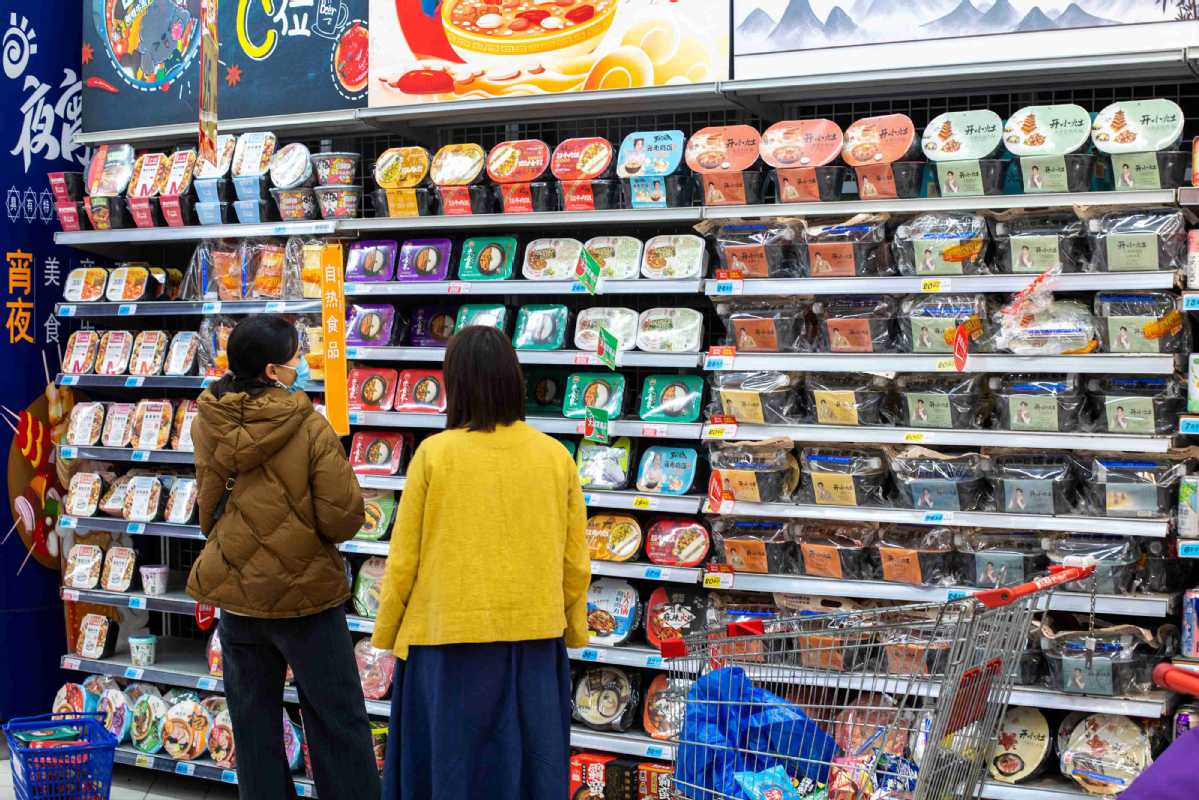Self-heating hot pot set to make waves

Recently, a batch of packaged self-heating hot pot products was shipped to Tokyo from a port in Jinpu New Area of Dalian, Liaoning province.
This marked the first-ever seaborne shipment of Chinese self-heating hot pot products in their entirety.
"Previously, self-heating hot pot products were only exported as individual ingredients and heating packs, which were shipped separately from various ports in China and then assembled at the destinations," said Zhang Lei, general manager of Dalian Maruyama Food Co.
The company, which is based in Wafangdian, Dalian, received certification from Japan's Ministry of Agriculture, Forestry and Fisheries in 1995, and has been exporting meat products, such as chicken, pork and beef, to Japan for over 20 years.
Last year, it exported nearly 2,000 metric tons of meat products, including about 20 tons of beef, for a well-known hot pot brand.
In 2021, the company started producing beef hot pot packs for the brand, specifically for its Japanese market, where it has hot pot restaurants as well as convenience products sold in supermarkets.
However, the cost of assembly in Japan was much higher than in China due to higher labor costs. This prompted the company to seek a more efficient method of exporting its products.
The successful seaborne shipment of the first batch of self-heating hot pot products in their entirety was a result of that strategy.
"It expands our business. We used to only provide part of the ingredients. Now, vegetables, soup base, vermicelli, pickled vegetables, tableware, and heating packs are all transported from qualified suppliers across the country to Dalian, where they are assembled and exported by us," said Zhang.
Recently, self-heating hot pot products have developed rapidly to satisfy picky palates in the form of instant meals. They are popular among youngsters in China, and demand for such exports is increasing each year.
Self-heating hot pot requires no external heat source like fire or electricity. When the components in the heating pack are mixed with a bottle of cold water, they release heat adequate for cooking the food.
One of the biggest challenges in exporting a self-heating hot pot in its overall package form is the heating pack, a critical component that releases a flammable gas when it comes in contact with water, said Wu Jinlian, general manager of Dalian Linghang International Logistics Co.
"The heating pack is classified as a dangerous good for export. But, since there are clear international shipping rules for heating packs, it is not a problem to ship them separately," said Wu.
There are no clear regulations on how to transport the assembled self-heating hot pot products, which contain both food and dangerous chemicals, she added.
With the help of staff from the Dalian section of China (Liaoning) Pilot Free Trade Zone, Wu contacted Luo Wei, the research office director of the Dalian dangerous goods transport research center of Liaoning maritime safety administration, who has for long researched safe transport technology of dangerous goods carried by ships.
"We purchased a dozen brands of self-heating hot pot products, repeated trials and tests and verification, assessed their safety risks, and constantly optimized the cargo transportation plan," said Luo.
Based on the solid test conclusions, they determined the international general safety transportation requirements for the product and issued the first domestic identification report on the safe transportation conditions of self-heating hot pot by sea.
Luo and her colleagues also went to the product assembly workshop and packing site for guidance.
"With this identification, we can find a suitable warehouse that can meet the storage requirements of both dangerous items and animal goods," said Wu.
She said that since Japan's Customs clearance requirements for food and hazardous chemicals are particularly strict, this batch of overall packaged goods has not yet been cleared.
"Basically, nothing goes wrong. With the significant reduction of production and logistics costs, the resulting price advantage will further enhance the competitiveness of self-heating hot pot products in the international market," said Wu, whose company is currently working to export self-heating hot pot products to the Republic of Korea and Southeast Asia.
Invest in China Copyright © 2026 China Daily All rights Reserved
京ICP备13028878号-6
 京公网安备 11010502032503号
京公网安备 11010502032503号





